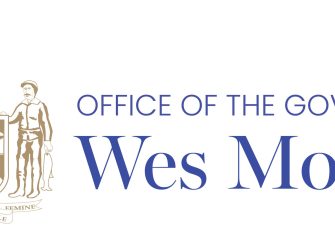
WASHINGTON – U.S. Senators Chris Van Hollen (D-Md.), Elizabeth Warren (D-Mass.), and Catherine Cortez Masto (D-Nev.) have sent a letter to Federal Reserve (Fed) Chairman Jerome Powell and Department of Treasury (Treasury) Secretary Steven Mnuchin urging that they provide greater financial assistance to state and local governments in the current economic downturn. The letter notes the importance of aggressive Fed and Treasury efforts to help cash-strapped state and local governments, while acknowledging that Congress must also provide the fiscal support that is needed to support these governments in the long-term.
State and local governments have been uniquely affected by the COVID-19 pandemic and the associated economic downturn, with recent state budget shortfall projections alone totaling a cumulative $555 billion through Fiscal Year 2022. These shortfalls have forced governments to furlough workers, cut worker pay, or close facilities, and local budgets are also strained to meet the significant health needs of their populations. These budget cuts and furloughs, like the pandemic itself, hit communities of color the hardest: according to the most recent data available from The Center for Economic Policy and Research, Black Americans make up about a quarter of the state and local workforce. And funding for state and local services “can help reduce barriers to opportunity that keep major parts of our society, from jobs to education to housing largely segregated along racial lines.”
“Communities of color are already bearing the economic burden of this pandemic, and if state and local governments are forced to let go of workers who have been temporarily laid off, that burden will be exacerbated unnecessarily, amplifying existing racial inequalities,” the Senators wrote. “We therefore urge you to use all available tools at your disposal to prevent the irreversible damage that could occur if state and local governments are required to cut spending and services, fire furloughed employees, and permanently eliminate public sector jobs- all outcomes that would permanently worsen existing economic inequality.”
The Senators noted that Congress provided Treasury with a $454 billion bailout fund in the Coronavirus Aid, Relief and Economic Security (CARES) Act to support lending to eligible businesses, states, or municipalities. Treasury and the Fed have set aside $35 billion of this funding to establish the Municipal Liquidity Facility (MLF) to provide loans for state and local governments, but the MLF to date has been vastly underutilized, suggesting that the current terms of the facility are insufficient. They called on Treasury and the Fed to expand the MLF and make its terms better for state and local borrowers, including by reducing the minimum population thresholds and extending the duration and interest rates of the loans, similar to the terms set for big business. The Senators also called on the agencies to consider allowing smaller municipalities to participate in the Main Street Lending Program.
“In recent weeks, Treasury and the Fed have successfully taken extraordinary measures to shore up financial markets, providing significant benefits to large corporations and shareholders,” the Senators wrote. “The millions of Americans who live paycheck-to-paycheck and rely on the services and employment provided by state and local governments need help too, and we cannot allow these communities to be left behind during our recovery.”
The Senators also reiterated their call for Congress to immediately provide more direct assistance to state and local governments.
The full text of the letter is available here and below.
Dear Chairman Powell and Secretary Mnuchin:
We write concerning the need for greater financial assistance to state and local governments and the impact that failing to deliver such aid would have on racial disparities in economic outcomes. While Congress has the responsibility to immediately provide relief to these entities through direct fiscal support, there are actions that the Department of Treasury (Treasury) and Board of Governors of the Federal Reserve (Fed) can take to keep states and localities solvent. In recent weeks, Treasury and the Fed have taken actions using the $454 billion fund provided by the Coronavirus Aid, Relief, and Economic Security (CARES) to provide economic assistance. While these actions stabilized financial markets and helped large corporations, they did not provide the same economic security for state and local governments.2 Our nation’s recovery efforts must start with supporting local communities, and we are concerned that, without additional efforts from the Fed and Treasury, giant corporations will reap all the benefits of this recovery while cities and states are left behind and suffer needless economic devastation.
The need for this assistance is particularly vital, given the devastating public health and economic impacts of this crisis on communities of color and the disproportionate impact that state and local workforce cuts would have on racial minorities. The most recent data indicate that Black Americans make up a roughly 25 percent greater share of the state and local workforce compared to their share of the private sector workforce. The most recent jobs report, which showed the gap between white and black employment increase to 5.3 percent, highlights how this crisis has already had an outsized impact on minority communities. Beyond these recent data points, it is well-established that adequate funding for state and local services “can help reduce barriers to opportunity that keep major parts of our society, from jobs to education to housing largely segregated along racial lines.” We therefore urge you to use all available tools at your disposal to prevent the irreversible damage that could occur if state and local governments are required to cut spending and services, fire furloughed employees, and permanently eliminate public sector jobs- all outcomes that would permanently worsen existing economic inequality.
State and local governments have been uniquely affected by the COVID-19 pandemic and the associated economic downturn, with recent state budget shortfall projections alone totaling a cumulative $555 billion through fiscal year 2022. At the same time revenues are declining, states and localities are spending more on essential services to support their communities during this crisis. The United States Conference of Mayors and National League of Cities estimates that the economic impact will hit public services in cities of all sizes: 50% of municipalities with 50,000 or fewer residents and 76% of municipalities with 500,000 or more residents anticipate having to cut public services. The National Association of Counties estimates the pandemic “has the potential to impact county budgets by over $144 billion through fiscal year 2021,” and while large counties will experience the “largest increase in expenditures and the largest decrease in revenue,” small counties would be impacted the most, with “a nearly one quarter (24 percent) reduction in their budgets.” As a result, state and local government officials “responded to the COVID-19 pandemic by furloughing workers at shuttered facilities and trimming payrolls in the face of substantial projected budget shortfalls.” Many of these furloughs and temporary layoffs have the potential to become permanent if further financial aid is not provided.
Failing to provide necessary aid to state and local governments not only threatens the stability of communities across the country, it would also have a disproportionate impact on women, Black, and Hispanic workers, who are overrepresented in public sector jobs, which have generally “provided more equitable opportunities for women and people of color.” The persistent loss of state and local jobs during the Great Recession provides a stark warning for our current economic crisis—public sector jobs continued to disappear even while the private sector began recovering from the Great Recession. These losses hit Black Americans the hardest – black workers held 20% of the 765,000 state and local jobs that were lost from 2007-2011, despite making up 12.8% of the workforce overall. Communities of color are already bearing the economic burden of this pandemic, and if state and local governments are forced to let go of workers who have been temporarily laid off, that burden will be exacerbated unnecessarily, amplifying existing racial inequalities.
While Congress must take immediate steps to provide direct fiscal support to these entities, there are steps that Treasury and the Fed can take now to ensure that funds continue to flow to these governments. The CARES Act provided Treasury with a $454 billion bailout fund to “make loans and loan guarantees to, and other investments in, programs or facilities established by the Board of Governors of the Federal Reserve System for the purpose of providing liquidity to the financial system that supports lending to eligible businesses, States, or municipalities.”14 Treasury and the Fed have so far announced how $195 billion of this money will be used, including a $35 billion investment to establish the Municipal Liquidity Facility (MLF) to “to help state and local governments better manage cash flow pressures in order to continue to serve households and businesses in their communities.”1617 This facility so far has only been utilized by only one state government and no local governments, suggesting that the current terms of the facility are insufficient. Expanding the MLF and making it a more accessible source of financing is one way that Treasury and the Fed can help ensure that we are not turning a blind eye to the need for a recovery that reaches all Americans.
You previously expanded the terms of the MLF to make more local governments eligible to borrow from the facility. This was the right decision. However, state and local governments are still in dire straits. We urge you to again reconsider the terms of these facilities to make them even more attractive to state and local borrowers. This includes extending the duration and interest rates of the loans to at least match the generosity you have provided through the facilities that lend to businesses that are of even poorer credit quality than the municipal borrowers. You should also reduce the minimum population thresholds required for municipal governments and counties even further to allow more local governments to participate. Additionally, you should examine whether it would be feasible to allow smaller municipalities that have existing relationships with lenders to participate in the Main Street Lending Program. To be clear, these solutions are not a substitute for Congress stepping up to provide the needed aid to these entities, but they can ensure that money keeps flowing to these governments during a time of extraordinary need to prevent a prolonged downturn and irreversible economic damage.
In recent weeks, Treasury and the Fed have successfully taken extraordinary measures to shore up financial markets, providing significant benefits to large corporations and shareholders. The millions of Americans who live paycheck-to-paycheck and rely on the services and employment provided by state and local governments need help too, and we cannot allow these communities to be left behind during our recovery. Making it easier for states and municipalities to borrow is not a substitute for Congress providing the financial support to these governments that is needed to prevent “deeper cuts in services, likely resulting in thousands of teacher layoffs, reductions in health care services, and other cuts that would worsen the recession and disproportionately hurt people of color and low-income people already particularly harmed by the pandemic.”19 But Treasury and the Fed still have an obligation to do everything in their power to support state and local governments, the people who work for them, and the people who rely on the vital services they provide.



